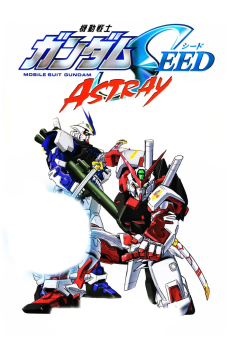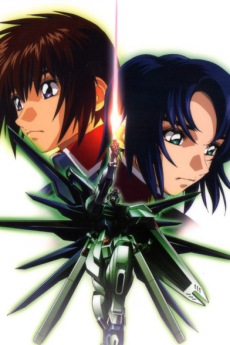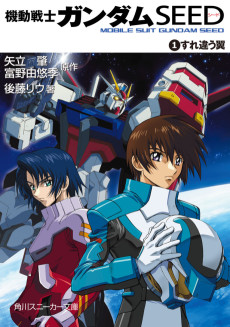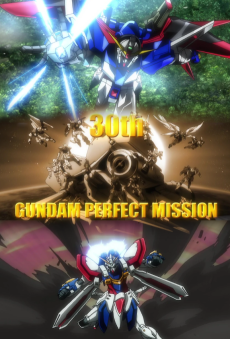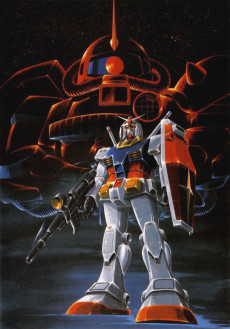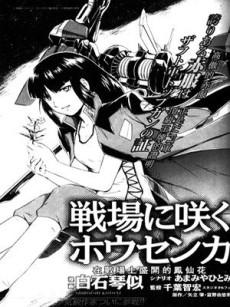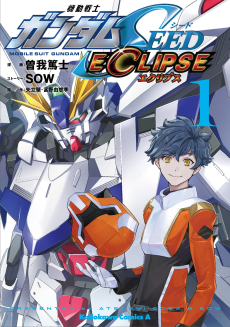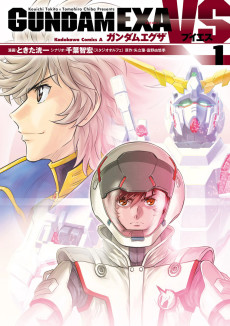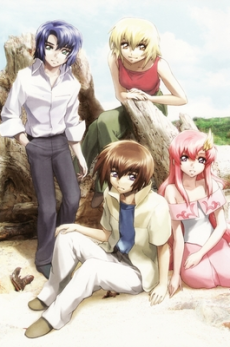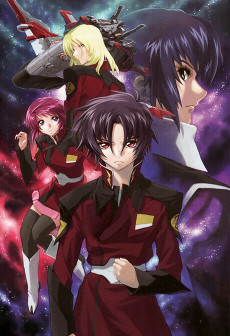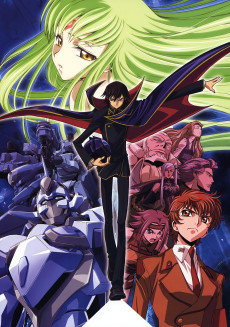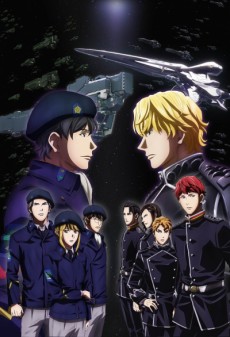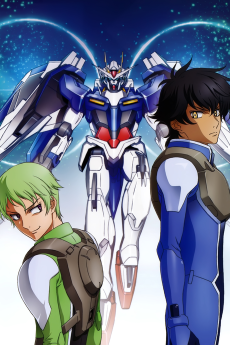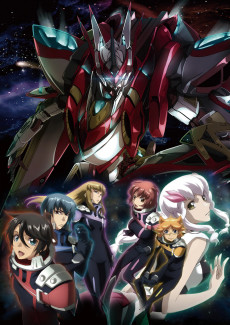KIDOU SENSHI GUNDAM SEED
STATUS
COMPLETE
EPISODES
50
RELEASE
September 27, 2003
LENGTH
24 min
DESCRIPTION
C.E. 71: In the midst of war between the Naturals (OMNI) and Coordinators (ZAFT), a unit from ZAFT is dispatched to hijack the Earth Alliance's newly developed mobile suits on the neutral colony of Heliopolis. Orb Civilian Coordinator Kira Yamato attends the technical college on Heliopolis. After ZAFT hijacks 4 of the 5 mobile suits, Kira stumbles upon the last one, Strike, forced to pilot it to save his and his friend's lives. During this confusion, Kira also reunites with his childhood Coordinator friend, Athrun Zala, who ironically turns out to be a ZAFT soldier and one of the hijackers at Heliopolis. Having control of Strike, Kira joins the Earth Alliance boarding the ship known as Archangel, to protect his friends while despairing over becoming the enemy of his childhood friend and people.
Note: An HD remaster was broadcasting starting on December 23, 2011 with two recap episodes cut, including new and updated animation, conversion to 16:9, and updated music.
CAST
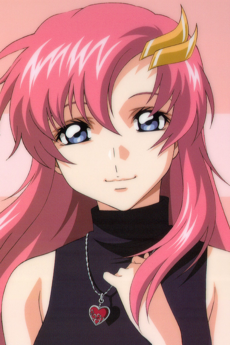
Lacus Clyne
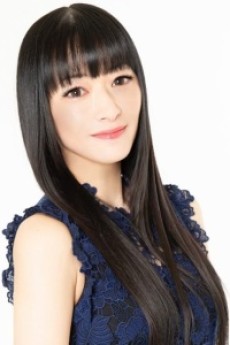
Rie Tanaka
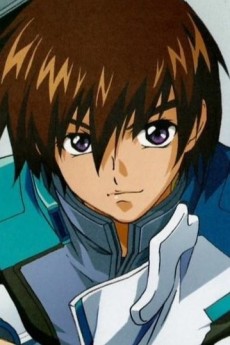
Kira Yamato
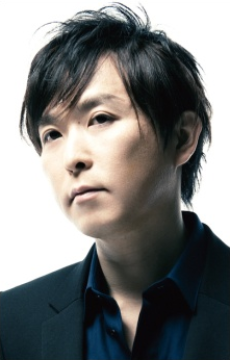
Souichirou Hoshi
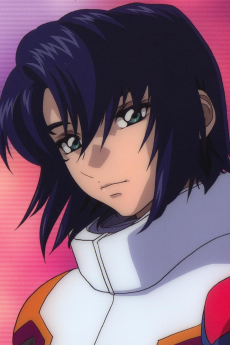
Athrun Zala
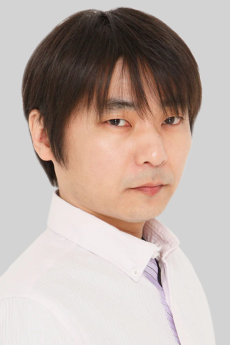
Akira Ishida
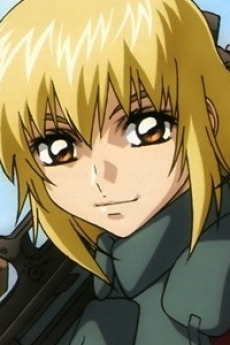
Cagalli Yula Athha

Naomi Shindou
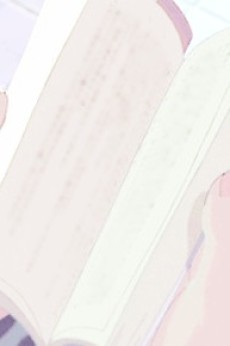
Narrator
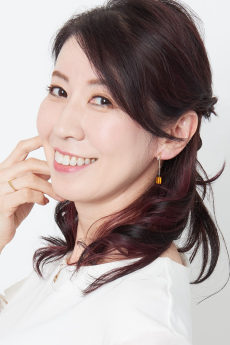
Kotono Mitsuishi
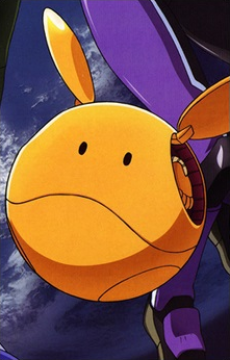
Haro

Kotono Mitsuishi

Mu La Flaga
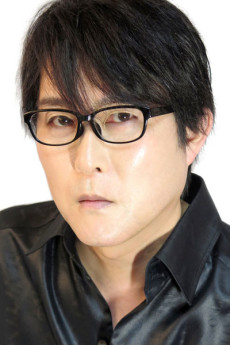
Takehito Koyasu

Murrue Ramius

Kotono Mitsuishi
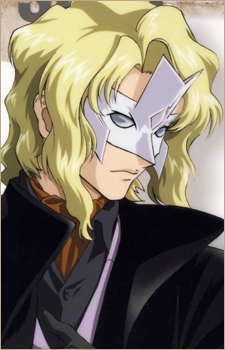
Rau Le Creuset
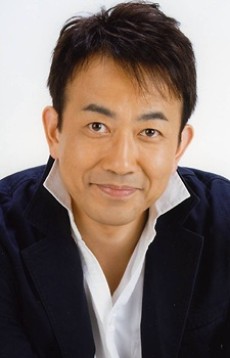
Toshihiko Seki

Yzak Joule
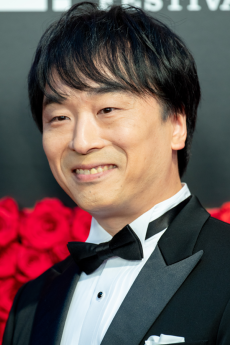
Tomokazu Seki

Flay Allster
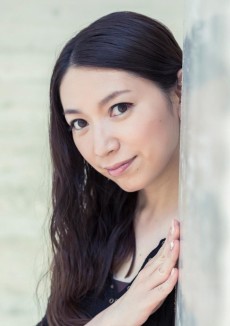
Houko Kuwashima

Andrew Waltfeld
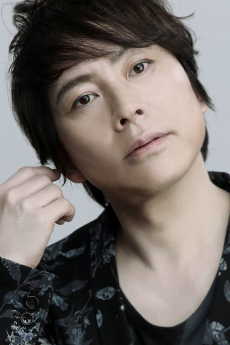
Ryoutarou Okiayu
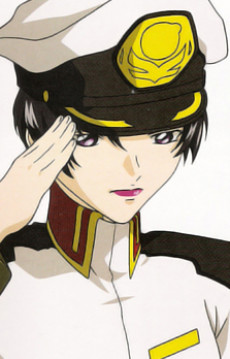
Natarle Badgiruel

Houko Kuwashima

Dearka Elsman
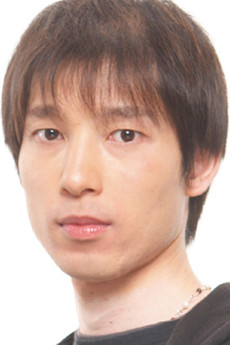
Akira Sasanuma

Nicol Amarfi

Mami Matsui

Aisha
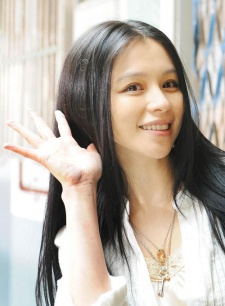
Vivian Hsu
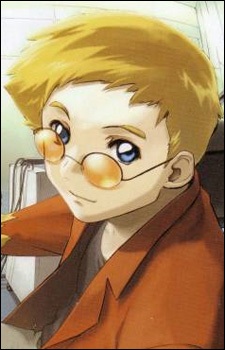
Sai Argyle
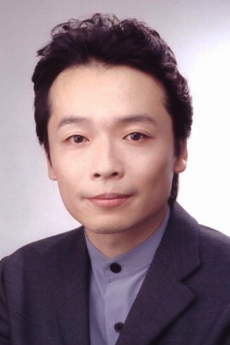
Tetsu Shiratori
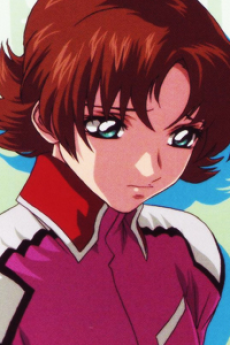
Miriallia Haw
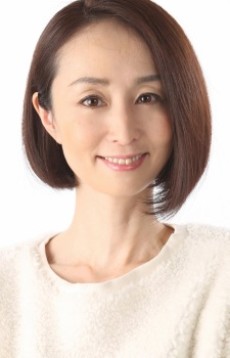
Megumi Toyoguchi
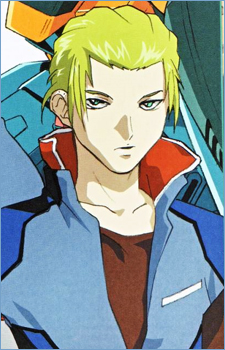
Orga Sabnak

Ryouhei Odai
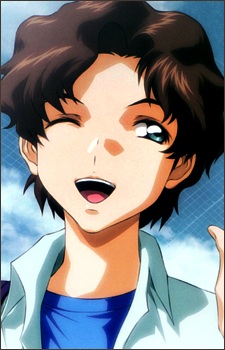
Tolle Koenig

Takayuki Inoue

Uzumi Nara Athha

Tooru Ookawa
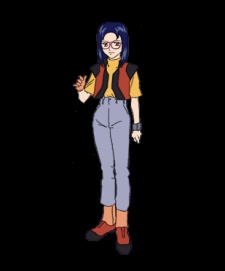
Juri Wu Nien
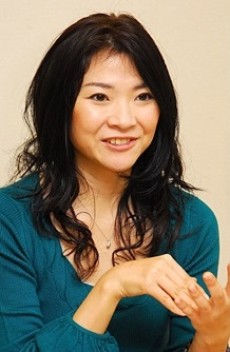
Yuuko Satou

Miguel Aiman
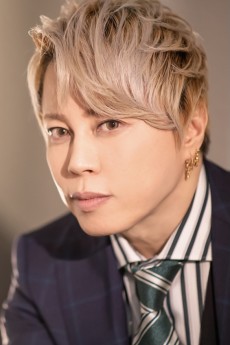
Takanori Nishikawa
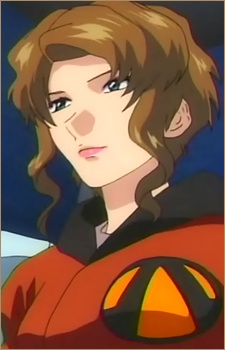
Erica Simmons
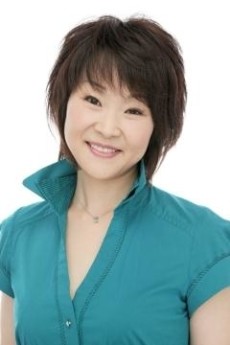
Michiyo Yanagisawa
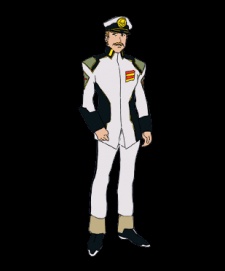
Lewis Halberton

Naoki Tatsuta
EPISODES
Dubbed
RELATED TO KIDOU SENSHI GUNDAM SEED
REVIEWS

Swanmay
10/100A complete train-wreck of a show, with no redeeming characteristicsContinue on AniListGundam SEED is Mobile Suit Gundam as seen by hardened anti-mecha fans. This review is hard to write, in that it's hard to laser in on the greatest faults of SEED, because it really does get almost everything wrong. But, let's go with the kneejerk one first.
Kira Yamato is a terrible character in every way. He is, simultaneously, a delusional idealist, a massive hypocrite, morally bankrupt, unlikable, unrelatable, the perfect human being, the least competent human being, and aggressively unfun to watch. Any fight with Kira has no tension in it, it is merely a question of when Kira decides to get serious and then wipe the floor with his perfect mobile suit that he can perfectly control. Within two episodes, Kira finishes the operating system of an unfinished prototype mecha, while fighting off an opponent, while awkwardly crammed into the pilot's chair with someone else. He does this in approximately 10 seconds. And the show likes to make the point that Kira is the perfect pilot, programmer, fighter, person, philosopher, idealist, and lover. Constantly. This is a show where, on frequent occasions, everybody stops to ask "Where's Kira? What is Kira doing right now?", because the setting revolves around him. Countless people die when Kira's superpowers could save him, because he just wasn't motivated enough to actually do something or he was so hung up on his asinine total pacifism after sustaining a bodycount that he still hesitates to fight in the season finale. He fucks his friend's fiancee (almost on screen, to the complaints of Japanese mothers everywhere), and for the crime of not bowing to Lord Kira, Kira threatens to kill him. Naturally, the friend totally gets over this in a few episodes and goes back to loving Lord Kira. He is a textbook mary sue.
The most under-discussed part of SEED, in my book, is the pacing. SEED crawls. As SEED is a soft reboot / heavily inspired by the original 79 Gundam, the direct comparison of pacing is this: The protagonist's party is attacked, flees in a space ship, and arrives on Earth in the original show in 5 episodes, while getting respectable character establishment in for that length of time. SEED takes 15 episodes to do this, and manages to even pad out the runtime with a a recap episode! This is doubly unfortunate because remarkably little happens in that 15 episode stretch, resulting in the recap episode having to pad itself out to hit its intended length. Like a checklist, SEED runs down the list of events from 79 and adds perhaps one event. SEED now goes on its own for a while, not directly adapting the 79 show. Here, the pacing shifts from that long 15 episode stretch of waiting for one event to happen, to events happening evenly, just very slowly. Where we would expect one episode would be enough, two are used. This pattern continues until they go back to space around episode 40, at which point the show returns to adapting the 79 show again. This is also the point at which you realize one of SEED's other greatest failings.
SEED's antagonists are atrocious. The 79 show sort of split the duty between the enemy royal family and the enemy ace, which made sense for its purposes of being a war drama focusing around a character evolving to meet the demands of the situation. SEED, however, doesn't really bother to do that. Kira is essentially the same person at episode 1 as he is in episode 48 (of the remaster). Consequently, there is nothing to really reflect in his antagonists. Therefore, the primary motivation of the opposing force in SEED is a poorly explained race war between the genetically modified colonists* and the naturally born Earth dwellers. I say poorly explained, because the argument really stops at "I don't like genetic modification". There is no real explanation for why the Earth dwellers are so virulently anti-modification. They aren't show to be religious, or worried about socioeconomic consequences for ubermensch to exist. They just, hate the principle of it, because they just do. They hate them so much that they are willing to nuke them out of existence, and the men on the field just don't question this. SEED goes very far out of its way to make the Earth people look bad. The Colonists also started an unprompted invasion of neutral colonies, so they're also morally bankrupt. If you want to understand exactly WHY anyone did anything in this setting, I hope you like reading the wiki, because the show does not explain a lot of key details in how the war started, or why it started, or what either side wants, or how they're organized, or really anything other than the basic.And then there's Le Creuset, the antagonist rival pilot. His motivation? He has none! You can kind of infer that he just likes war, or he's somehow bitter about how he was born, but it's just guesswork. The other antagonists of the show, like the Earth's insane research director who is clearly crazy (why haven't you noticed, earth federation command??), also have no motivation besides furthering the mindless race war that they were never given a reason to care about. And if you're a slightly redeemable antagonist (and sometimes if you're not), sometimes Kira's natural godliness will encourage you to hop sides into a hopeless neutral faction (read: Kira's posse) that will inexplicably save the day anyway, because Kira. This happens multiple times, and even the person hopping sides is just as confused as the viewer is.
*They call themselves coordinators, but based on their performance very few of them are coordinators. I strongly suspect this is a holdover from the original show, where Zeon's internal propaganda was that all spacenoids were newtypes, which was blatantly untrue and not falsifiable . SEED does not explain why they say this, since you surely have records of who was gene modified, so the population surely knows it's bullshit.
Then, there's the niggles, of which there are countless. Frequently, things are name dropped but not explained. Commands are given that seem pointless, weapons are named but given no context as to what they are or how dangerous they are. Eventually, the original cast is sidelined so badly that Yamcha would be embarrassed. Scenes that might have emotional impact, are ruined by the unlikeablility of the cast and the meaninglessness of the plot and withheld information. One character has her established character assassinated and replaced with a generic peace princess halfway through. Several characters are hyped up as major shakers and then proceed to do nothing. Mass murderers are given a pass by the Kira posse because they're useful. The acting is poor. Composition is mediocre most of the time. Most of the sci-fi concepts are nonsense and were clearly written by people whose last drop of science education was in high school, in the 80s. The budget seems to be mishandled and spread very unevenly, leading to large stretches of shot-reverse shot stills with rudimentary lip flaps to save up for the next big action scene. The ensuing action scene will then heavily reuse shots from previous scenes. This review is already long enough, but suffice to say that there are maybe four episodes in the 48 episode run where I didn't question Sunrise's decisions at least every three minutes.
SEED, being loved in Japan for some reason, got a remaster, which best I can tell only exacerbated SEED's problems. The upshot of the remaster is that they cut out a lot of reused scenes (the remaster still contains a lot of stock footage and flashes back constantly), which is a positive change. On the annoying-but-not-totally-unspeakable side of changes, the show frequently alternates between 720p new footage and 480i old footage. This is extremely distracting but you will eventually stop noticing as the other flaws of the show command your attention. The most egregious part of the remaster is that Sunrise has redrawn most faces of characters, when they are up close, to be more bishounen and shiny. This has the absolutely infuriating side effect of making everyone's face totally unreadable, meaning that any chance of "show, don't tell" acting is essentially gone. Every shot of a character reacting that was in the original, is now a waste of time, because it no longer conveys its original meaning. So, if for some reason you plan on watching SEED despite this review, I encourage you to watch the original and tough out the extra filler. Or maybe the special edition pseduo-movie compilation.
In conclusion:
Seed is a show with a badly written setting, characters, plot, and screenplay;
a show with poorly written and clumsily integrated music
mediocre to outright bad mechanical and character designs
and every original bone in its body, is fundamentally a bad boneThere is no reason to watch SEED. What it wants to do, has been done better by its predecessors. This show is not even fun to mock. There is absolutely no joy in it, and it was a chore to watch, with only morbid curiosity keeping me going.

Pockeyramune919
84/100It's no masterpiece, but Gundam SEED is a very fun, yet salient show that does not deserve hate.Continue on AniList[
 ](https://anilist.co/review/10290)
](https://anilist.co/review/10290)This review contains major spoilers for Gundam SEED

Gundam SEED is a bit of an oddball in the Gundam franchise.
As of this writing, there are at least thirty Gundam shows/movies. The only thing bigger than the franchise itself is its fandom, with its disparate tastes. With so many entries and universes, there’s a lot for viewers to latch onto. Conversely, there’s a lot for viewers to dislike.For this reason, it's somewhat hard to get a consensus regarding Gundam entries. For example, I absolutely loathe Mobile Suit Gundam ZZ as a sequel to Mobile Suit Zeta Gundam, and many agree that it's an odd show, but it's not hard at all to find those who not only like ZZ, but prefer it to Zeta. People often cite Victory Gundam as one of the worst entries, but it has a sizable number of fans, including myself.
The Gundam SEED duology is such an odd case because, at least in the Anglosphere, there's a clear consensus that it's the worst Gundam series. People will scramble out of the woodwork to defend ZZ and Victory. People will give nostalgia cushions to Gundam Wing. Gundam SEED and its sequel are given no such concessions. To be clear, I'm not saying that no one on this side of the pond likes Gundam SEED. Given how big the franchise and fandom are, that would be a ridiculous claim. However, it cannot be denied that revulsion for this series is more widespread and accepted than other entries. Early into my journey with Gundam, I knew that people thought this show was bad. The reason always seemed to escape me, but the disdain for this show was palpable. For me, the reception became bigger than the show itself and as I completed Gundam shows one-by-one, dread set in as Gundam SEED the Terrible loomed closer and closer. Judgement Day arrived and I took the plunge.
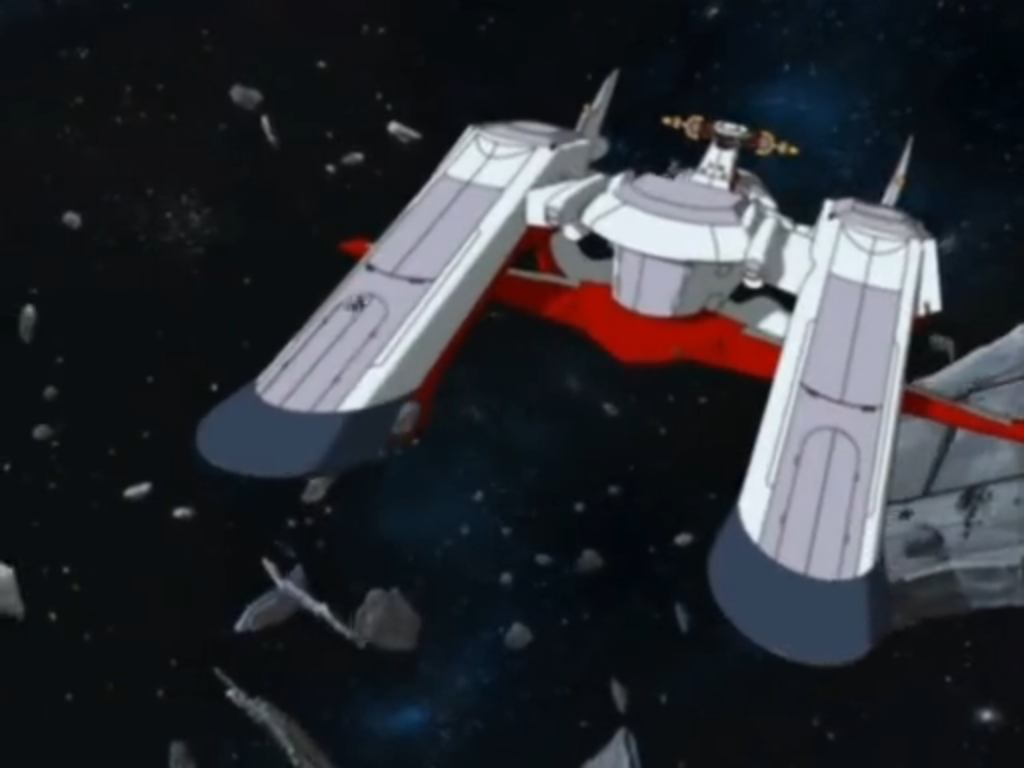
What I found, however, was not the coldness of the abyss but the warmth of Cloud Nine. I was pleasantly surprised and then some. I really enjoyed my time with Gundam SEED. I'm really unsure what all the fuss is about, but I'm prepared to defend this show from the legion of haters it's accrued over the years. While Gundam SEED has its problems, they're not glaring enough to make it a bad show. I found Gundam SEED engaging from start to finish. And to make this hot take completely nuclear, I'm willing to go so far as saying that the original Mobile Suit Gundam, which people often accuse SEED of "ripping off," is inferior to SEED.
Gundam SEED follows Kira Yamato and his group of friends who all live in the colony of Heliopolis. It is year 70 of the Cosmic Era and the war between the Naturals' (normal humans) Earth Alliance and Coordinators' (genetically modified humans that live in space) ZAFT is in full-force. Heliopolis is a neutral colony, but it finds itself under attack by ZAFT operatives. Their goal is to steal the five prototype mobile suits that the Earth Alliance has transported to Heliopolis in secret. The mobile suits are the G-Weapons or "Gundams." While ZAFT manages to steal four of the Gundams, Kira manages to commandeer one, the Strike. In it, he faces off against his former friend, Athrun Zala and it is revealed that Kira himself is a Coordinator. Despite this fact, he finds himself serving with the Earth Alliance.
One of the first things I praise Gundam SEED for is how realized the coordinators are. The Coordinators serve as the Cosmic Era’s analogue for the Universal Century’s Newtypes. At Gundam's advent, Newtypes were ill-defined and virtually invisible. Amuro's aptitude at piloting the Gundam was originally not attributed to his status as a Newtype, but the mobile suit's Learning Computer. Here, the divide between Naturals and Coordinators is very clear. Intrinsically, we know why Naturals dislike Coordinators; as genetically modified beings, it's obvious that they serve as the "haves" to Naturals' "have-nots." And of course, later on, we get a more in-depth look at the attitudes regarding the Coordinators, making this world feel quite real. I think Kira's status as a Coordinator breeds interesting drama as he's essentially pulled between two worlds, constantly having to ask himself who he’s fighting for, and why. We also get to see the bias and racism towards Coordinators and Naturals firsthand, contributing to this “realness”. Most importantly, Coordinators don't dominate the cast in terms of competence and importance. In the Universal Century, Newtype status starts to be handed out like candy, giving the feeling that only Newtypes matter. Here, while Coordinators are still strong, Naturals get their own time to shine, as indicated by the presence of Naturals such as Cagalli and Mu La Flaga.
Gundam SEED's biggest strength is in its characters. I've heard SEED once described as melodramatic. The emotional, intercharacter drama certainly is front and center, so if that's absolutely not your thing, I'd advise you to steer clear of SEED. The characters are loud, they're emotional, and they're dramatic. If drama isn't a hard "no" for you, however, I'd urge you to stick around. After all, mecha, more often and not, isn't just an excuse to watch cool robots fight one another, but also a vehicle to explore political themes. Why not use it to explore character themes as well? More importantly, as criticism, "melodrama" is often used to describe characters who's characterization doesn't match the level of drama they're thrust into: cardboard cutouts emoting, essentially. I'd hesitate calling Gundam SEED melodramatic because I was enthralled by the characters and I was legitimately engaged with their struggles.
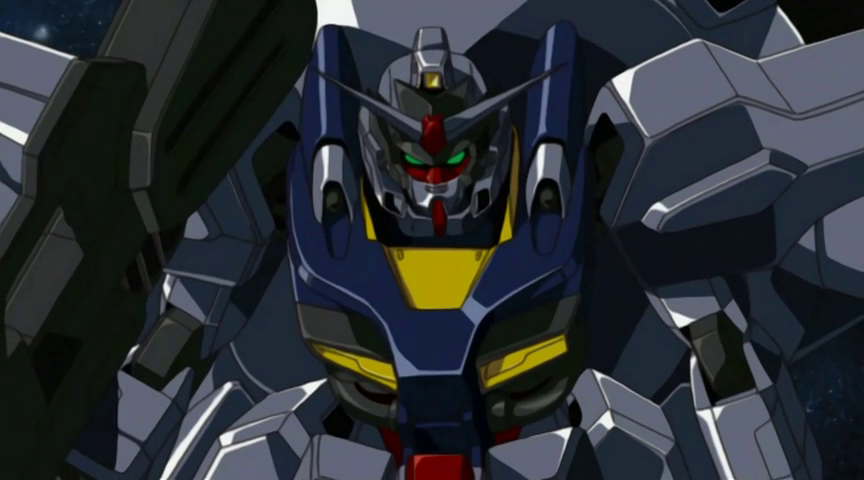
Former friends, Kira and Athrun have a history together, making their rivalry feel a lot more personal and poignant than a lot of other Gundam rivalries. There's an element of tragedy to their relationship from the outset that really makes me want to know how everything will shake out.
Rau Le Creuset is among the most compelling Char Clones I’ve encountered and I tip my hat to Kevin T. Collins’ voicework. Creuset has both Char's charisma and his menace, the latter played to a chilling effect as he comes into his own during the final arc. It is there where he's revealed to be an unhinged product of man's greed, the show's themes spectacularly coming together in the form of its villain.
It's a testament to how good SEED's characterization is that I ended up empathizing with characters I initially didn't care for. At the end of the day Rau Le Creuset is a murderous nutjob, but his backstory is tragic enough that you can't help but feel sorry for him, even if his actions are heinous. I wasn't a fan of Liteunant Natarle Badjiruel's cold, logical attitude, but her sacrifice borne from her character development still got to me. Finally, while Flay Allster's flagrant racism made me initially dislike her, I saw how the war matured her, saw how her relationship with Kira changed her. I desperately wanted her to reunite with him so she could reveal her true feelings. Early on, I wouldn't have expected Flay's death to hit me as hard as it did.
While I like Amuro and Char, that's mostly due to their various appearances over the years compounding on one another. When I had finished the original Mobile Suit Gundam, they hadn't left that much of an impression, unlike the characters of Gundam SEED, which managed to grab my attention in one one show.
Characters are seldom one-note; I thought Lacus would be a very shallow, one-dimensional character that espoused peace to the point of absurdity, but I was very pleasantly surprised to see the singer take on a commander role at the series' end.

It's often an unsung praise in regards to media, but momentum is a vital component of enjoyable stories and Gundam SEED has this in spades. Each episode ends in a way that simply begs you to watch the next, leading to a very kinetic viewing experience as episodes link seamlessly to one another, if not chronologically, then in tone and situation. As much as I love Turn A Gundam, its format doesn't do much to actively retain viewers, unlike Gundam SEED which positively grabbed me and refused to let go until I finished the show.
Like most Gundam shows, Gundam SEED showcases the horrors of war. It's not really cited as a dark Gundam show, but SEED can get pretty gruesome, from the somewhat graphic deaths of soldiers to the losses the characters will face, SEED can be a taxing show for viewers and characters alike. In Gundam the horrors of war are often conveyed via the enemy body count that the pilots accumulate over the course of the series. I think SEED takes it a step further by having the cast consistently lose loved ones, once again, making things feel more personal. Pretty much everyone gets a turn in the trauma conga line and it really sells how horrible war is. What sells it even more are the perpetrators of the conflict — ZAFT and the Earth Alliance. Neither side is noble, with both committing atrocities due to being led by racist, power-hungry maniacs. You could argue that it's unrealistic, but it certainly gets the point across that war brings out the worst in us.
The music is top-notch, really helping in setting the sad, yet epic tone of the series through sorrowful strings and boisterous brass. Like any good Gundam show, the music gets you pumped. SEED also has the nice distinction of having very, very good EDs. I knew and loved “Anna ni Isshodattanoni” months prior to watching SEED, to the point where it quickly became one of my favorite EDs. I was sad to see it go in episode 27, but its successor, “RIVER” also became a favorite. I wish I could say I loved the final ED, “FIND THE WAY” as much as the other two, but it's much too sad for me and I think it seldom fits the show. Unfortunately, I can't say I particularly cared for any of the OPs.
Finally, what's a Gundam show without its titular mobile suits? The Strike is pretty cool, albeit somewhat basic, as per standard protagonist suit fare. Not to worry, however, because SEED has Gundams in droves. While the amount of Gundams is pretty conservative in the first half (I say that, but there are still five), they're handed out like candy in the second half. The amount of Gundams consistently sortied would make even Gundam Wing blush. But I don't care, I was so giddy to see these cool, powerful suits duke it out. You might not care for SEED if you're more into grunt suits. As someone who prefers Gundams anyway, I welcomed the excess. Part of the beauty of having more Gundams is that the designs can be a bit more out there. With only a few Gundams, you're stuck with the relatively milquetoast Americana-colored suits such as the Strike (though I do like those wings). With more suits, you can have more "out there" designs such as the Providence. As fair as Gundam suits from the show go, the Aegis is my favorite. It’s quite elegant and the red goes a long way in making it stand out. SEED certainly has its fair share of grunt suits as well, including a doggy!

While I've praised the characters at length, they're certainly not perfect, however. True, while I found the characterization compelling, the characters themselves could have been a bit more realized and fleshed out. SEED does a good job of showing us who the characters are in this very life-changing situation they find themselves in, but I grasp at straws defining who they were before, their "normal" as backstory takes a backseat. While Athrun and Kira are friends, I couldn't tell you what their friendship was characterized by or how they became friends in the first place. Athrun and Lacus are engaged at the start of the show but I couldn't tell you the first thing about their relationship because we hardly see them interact. Lacus talks about how Athrun's changed, but this rings a bit hollow to my ears because I only have a sense of the "after" without the "before" to compare and contrast. Similarly, Kira is defined by his bond to his friends, but a lot of the time, we only see this relationship's strain. It might have taken away from the tone, but an episode where they're all having fun together could have really helped in this regard. These are but a few examples of characters being somewhat unrealized. I'd say SEED has a problem of "telling, not showing," but honestly, SEED tends to tell little, too, leaving viewers to fill in the blanks in regards to character backstories and relationships: potentially great for fanfiction readers and writers, bad for everyone else. It certainly wasn't a dealbreaker for me, but be aware that if you scrutinize these exciting characters, they may come up lacking.
In regards to the Rau Le Creuset, it may be a case of liking him as a concept more than the character himself. He certainly could have been handled better; his rivalry with Mu La Flaga certainly makes sense thematically as he's a clone of Mu's father, but Mu has a burning hatred for Creuset far prior to this revelation. Going back to my previous point, these two clearly have a history, but it's never adequately explained. Furthermore, Creuset's exciting traits were pretty backloaded; prior to the final arc he comes across as your standard, mysterious Char Clone, nothing more, nothing less. Fresh from the ending, it's easy to say he's among my favorite Char Clones, but looking at the series as a whole, he can come across as a somewhat milquetoast villain. His true intentions could have been seeded a bit more throughout the series. As is, his grandiose status feels unearned, albeit entertaining.

Then we have Cagalli, one of the only SEED characters I actively dislike (there's also Azrael, but he's designed for the express purpose of being a smarmy hatesink). She's a tsundere who seems to scream at and berate each and every character she can find. Her know-nothing-know-it-all attitude was very annoying and her "tender" scene with Athrun was a joke compared to Kira's own with Lacus because her interaction was simply her yelling at him.
Don't leave thinking characters are SEED's only blight, though.
I didn't quite care for the show's character designs. While I could ignore it after a while, whenever the designs are focused on, such as during closeups, I can't help but think about how bad it looks. Not hideous, mind you, but I'm certainly not clamoring for a SEED poster to slap on my wall. The eyes of the main characters are quite large and scream "early 2000s anime," and the lips are paradoxically too-defined and not-defined-enough, making characters occasionally look odd when they talk. In general, characters look somewhat "soft" like an amateur Play-Doh project.
Production values can be lacking: most notably in the animation department. The most egregious example comes from Athrun and Kira's final fight, which isn't actually animated: instead, the action is conveyed via still images of various attacks. One of the emotional highs of the show is essentially a Microsoft PowerPoint presentation. If you thought this brand of cutting corners was bad, just wait until you see the metric truckload of flashbacks and clip shows. Gundam SEED features at least three episodes that are primarily clip episodes, some handled a lot better than others. This isn't too out-of-the-ordinary in regards to anime. It's certainly annoying, but you can just skip it and be on your way. The problem with SEED, however, is that clips and stock footage weasel their way into a great deal of episodes. It feels like the SEED showrunners think their audience has the memory of goldfish, for they'll show flashbacks of very recent events multiple times in one episode. This ridiculousness quickly went from funny to frustrating. I hear the remastered edition fixes these problems, but I watched the English dub of the original release, so my rating is with these defects in mind.

It's not really anything I minded too much, but this series is not at all subtle. While I'm fine with the heightened emotion, I'm sure it'll turn viewers off who want a more subdued show. Characters cry sparkly anime tears a lot, declarations are sworn a lot, there's wanton violence that's as graphic as you can get away with on a daytime slot, Kira's sexual relationship with flay eschews subtext in favor of "text," philosophy is made quite bare thus relieving viewers of thinking. SEED is "extra," and while the characters' backstories can be bare, their personalities and what happens to them are anything but. I'm sure this can lead SEED to feeling shallow and "populist." SEED may not be "deep", but it certainly manages to show the horrors of war while not forgetting the humans that wage them, all while being entertaining throughout.
The more I think about it, the more I see flaws start to show: the SEED factor is never adequately explained, Kira can be a bit too powerful, like Zeta, the protagonists have a very clear moral high ground, Lacus' role as freedom fighter isn't seeded too well, etc. None of these are dealbreakers for me, but together, they can prove too much for some. By no regard is SEED a perfect show and as I said before, you can see the cracks quite clearly if you begin to scrutinize. But ultimately, I struggled to find SEED particularly flawed in terms of Gundam shows. It might be a bit idealist, it might be a bit dramatic, but that's fine in my book. Gundam is massive, so there's room for more than one type of show: they can't all be Turn A Gundams, they can't all be Zetas, they can't all be Iron-Blooded Orphans, nor should they be, because that would be redundant. Gundam SEED is a fun show that makes the ethos of Gundam salient while still being entertaining. I think new and old viewers alike can get something out of this show.
Honestly, I'm really not sure what the hubbub is about. It's not the best Gundam show, but it's nowhere near the worst, either. At worst, I'd say SEED is middling. Maybe I'm just very easy to please, or maybe the reception of the sequel tarnishes the original. Either way, I'm hungry for more and I'll be starting Gundam SEED Destiny very soon expecting to find more of what I loved and hoping that my criticisms will be addressed.
8.4/10
B
YamatoTheGreat
80/100The flawed, compelling show that sparked my love of animeContinue on AniListAh, Gundam SEED. Few anime are as divisive as this one. In fact, any time it's mentioned, scads of pseudo-intellectuals seem to crawl out of the woodwork to tell you why you should feel bad for enjoying it. With an all-new SEED movie on the horizon, there's no better time for a retrospective of the anime that got me into anime in the first place. This "review" will be filled with subjectivity and some sarcasm, so you've been warned.

Long ago, I stumbled across this show during its original airing on Toonami. At the time, I wasn't even into anime. I was just a youngster that enjoyed cartoons. But something about SEED immediately drew me in. The characters were unique and flashy. The music was captivating and different from anything I had heard, being a total non-weeb at the time. The atmosphere of the show was decidedly more mature than any of the other cartoons I was into. And as shameful as it is to admit, all it took was one look at Lacus Clyne for little YamatoTheGreat to fall in love. But is this show even any good? Is it worth watching as we enter 2024, almost 20 years after its original airing?
From the perspective of a first-time anime watcher, Gundam SEED had it all: violence, suspense, political intrigue, romance that pushed the boundaries for its time (even including a sex scene of all things), giant robots, and an edgy, emotionally-conflicted MC that almost any troubled young man could self-insert into. This show was cool. But as the years went by, time wasn't kind to SEED. A show that was once a pioneer became trite, and the hate train left the station.
I won't completely discount that viewpoint, either. SEED definitely has many flaws. It has the cable-TV edginess of a prime-era Nickelodeon teen drama wrapped up in the backdrop of a brutal nuclear war over the future of humanity, and some would say it does neither well. The animation is decent, but stock footage is commonly reused, to an embarrassing degree at times. Kira Yamato is an interesting MC, sometimes for the wrong reasons. This seems like a textbook case of nostalgia bias: a show that will never have the appeal that it did back in 2004.
However... I can't bring myself to hate it. In fact, I love it.
Gundam SEED succeeds in many ways that it shouldn't. The characters have surprising depth, and their relationships develop in unpredictable and fascinating ways. The war plot is compelling, filled with twists and turns, and doesn't shy away from showing the dark side of humanity. It toys with the idea of what gives a person value, and drives home the point that some things are worth fighting and dying for. Cliche? Perhaps. Enjoyable? Absolutely.
Across the 50 episodes of SEED, there are some truly prime moments. Characters switch sides, beloved friends are mercilessly slaughtered, and unexpected pairings develop. At the center of it all is one of my all-time favorite villains in Rau Le Creuset, a man whose twisted ideals make just enough sense to make you question who the real villain of this story is. To this day, the last 10 episodes of SEED are some of the most hype in all of anime to me. In fact, from episode 35 onward, this show never lets up, throwing haymaker after haymaker all the way up until the (admittedly sudden and unsatisfying) ending.
To the me of 2024, SEED is a time capsule: a warm reminder of a long-gone time when Toonami on a Saturday night was something to look forward to all week, and the only real worry on my mind was whether or not I'd get to stay up late enough to watch it all. Back then, SEED somewhat stood out among its Toonami peers: a fairly mature, thoughtful look at war, filled with character drama and brutal storytelling. Perhaps that wasn't entirely a good thing, as SEED was demoted from primetime Toonami before it ever finished airing.
Despite its shortcomings, though, it was the spark that ignited my love of anime. Even 20 years later, that's still true. And even though I'm twice her age now, Lacus Clyne is still lovely.
So, is Gundam SEED actually any good? My subjective answer is a resounding yes. It's easy to fall into the trap of only watching what is "objectively" good, and in the process, we can lose the very joy of this hobby. Anime, like any art form, has the power to affect people in borderline magical ways. Don't let anyone ruin that. Watch what resonates with you, and enjoy the time we have here on Earth. Life's too short for anything less.
...Unless it's Gundam SEED Destiny. Please don't watch that.
SIMILAR ANIMES YOU MAY LIKE
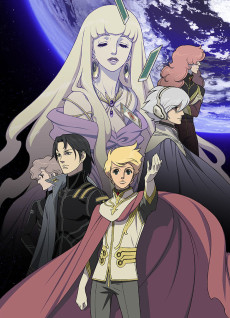 ANIME ActionTerra e... (TV)
ANIME ActionTerra e... (TV)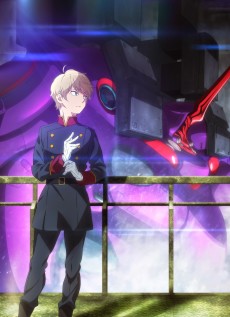 ANIME ActionAldnoah.Zero 2
ANIME ActionAldnoah.Zero 2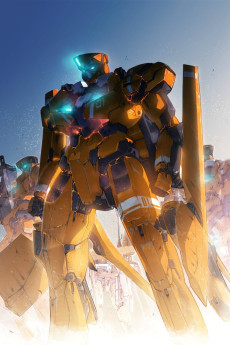 ANIME ActionAldnoah.Zero
ANIME ActionAldnoah.Zero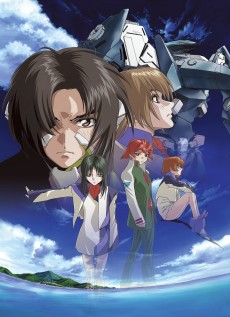 ANIME DramaSoukyuu no Fafner
ANIME DramaSoukyuu no Fafner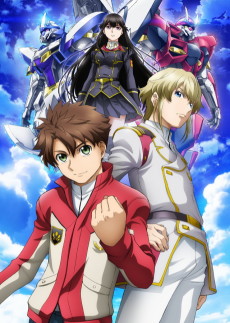 ANIME ActionBuddy Complex
ANIME ActionBuddy Complex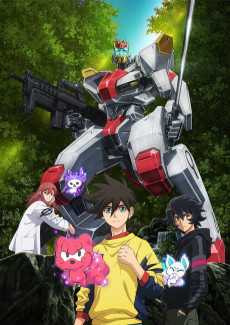 ANIME FantasyKyoukai Senki
ANIME FantasyKyoukai Senki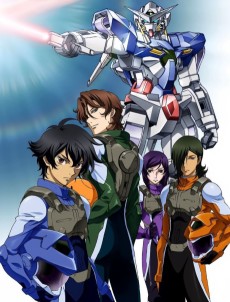 ANIME ActionKidou Senshi Gundam 00
ANIME ActionKidou Senshi Gundam 00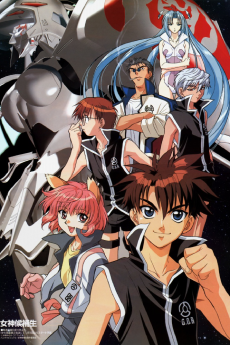 ANIME ActionMegami Kouhosei
ANIME ActionMegami Kouhosei
SCORE
- (3.6/5)
MORE INFO
Ended inSeptember 27, 2003
Main Studio Sunrise
Favorited by 626 Users


